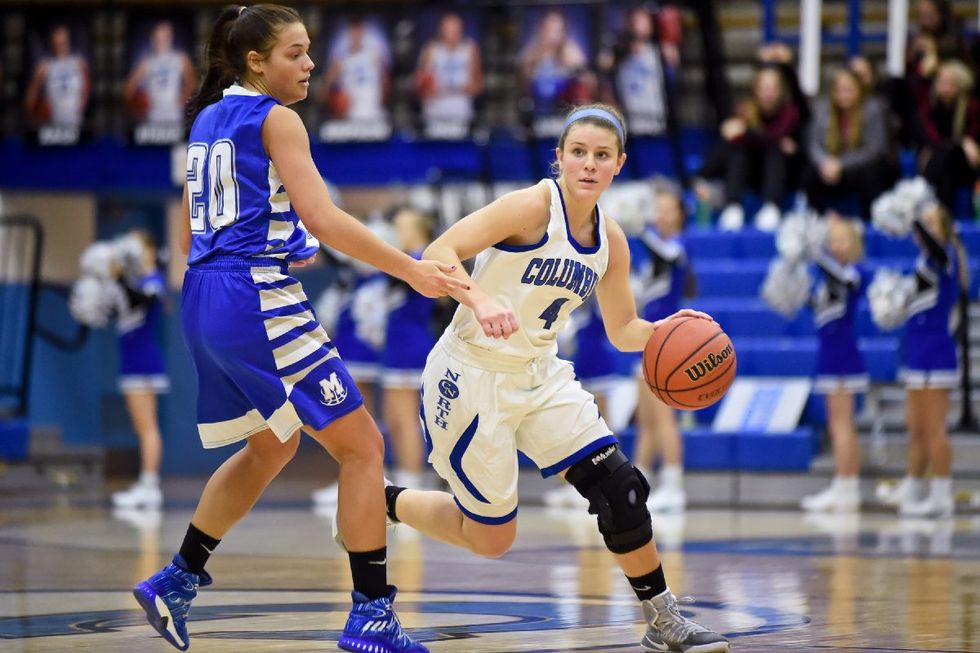I grew up with a basketball in my hands. For as long as I can remember, my sport was the center of my world - all the hours of practice, the long road trips to games and late nights spent doing homework were worth it. Basketball made me happy and whole. I couldn't imagine my life without it... and then sophomore year came.
I glanced at the clock with the ball in my hands, eager to make a shot that could tie up the game with less than a minute remaining. I took off, full force, towards the hoop. Suddenly, I felt a push from behind and within a matter of seconds, I was on the ground, clutching my knee, totally unaware of the severity of the situation.
When the doctor told me a few days later that I had torn my ACL, my world felt like it had been turned upside down. I traded my high tops and jersey for a knee brace and warm ups and prepared to face one of the biggest obstacles of my life. I made it through reconstructive surgery and a year of physical therapy, but looking back, I have no clue how I did it. Truthfully, I don't think about it that much anymore.
The other day, someone I was having a conversation with called me a "broken athlete." I have no problem talking about my injuries - they are a part of sports and helped shape who I am today. And yes, there was a time where I would have identified as an "injured athlete." That's fine. It was temporary. But to hear someone call me "broken" is not okay. I am not, and was never, by any means "broken."
Anyone who has sustained a serious sports injury knows that it's heartbreaking. The pain of being on the sidelines hurts more than any physical wound. Watching your team play your game when you can't be out there with them makes you realize how much you take your health for granted. Because no matter how often you complained about practice or the running or the late nights, you know you would give anything to play again.
People underestimate the mental toughness and resilience it takes to start from ground zero and build yourself up again. After surgery, I couldn't even lift my leg. I had to learn to walk again. You don't appreciate your healthy body until something happens and it's not there anymore. But even then, in your weakest moments, you are not "broken."
You are healing, growing, evolving into a stronger athlete and person.
All of the lessons sports have taught you over the years emerge front and center as you grow frustrated with your progress and long for the athlete you were. You think about how succeeded in sports and realize you know exactly what to do: be strong, trust the process, push past discomfort and above all, keep going. Even in that time on the sidelines, you are still an athlete. That never changes.
You are an athlete from the day you fall in love with the game until the day you decide you don't want that title anymore.
You are an athlete long after your last high school game and you are an athlete well into your days of just playing sports for fun. And if you get injured and can never play again, you are by no means a "broken athlete" - your sport will always be a part of who you are.
Tearing my ACL turned out to be a blessing in disguise. It challenged me like never before, helped me to realize how fortunate I am and reshaped my definition of the term "athlete." To me, being an athlete means loving my sport and allowing it to shape me as a person. It means that while my expression of that passion may take different forms in different phases of my life, it will always be part of who I am. It means that no matter what life throws at me, in sports and in other endeavors, I know that I am never, by no means "broken" or incapable - I am powerful beyond measure, and no one can ever take that away from me.











